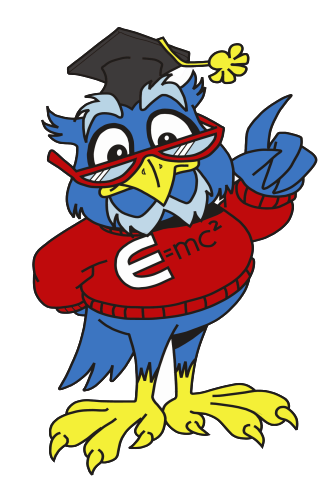O.W.L. FROM EUROPE
In real life, I am the Great Grey Owl - scientific name Strix nebulosa.
I live in the tundra and northern forests of Poland, Scandinavia, and Siberia, but am
rarely sighted in Western Europe. I live in the highest tower of Kornik Castle, Poland.
20 kilometers south of the academic center of Poznan. Kornik Castle is state-owned.
I am proud to be a member of the bird family, as the first bird to live on Earth about
one hundred and fifty million years ago (it was about the size of a pigeon and was
called archaeopteryx). In today’s world, there are nearly nine thousand species of
birds ranging from a hummingbird no bigger than a moth to the ostrich - which is
taller than any human.
People think of me as a natural leader who expects everyone’s total involvement.
I enjoy taking calculated risks and challenges as well as giving others opportunities
to do the same. I keep myself up to date with happenings throughout the world by
using some of the amazing methods of communication that have been and are
being, developed.
I am most effective when I can encourage others to improve, get things
done, and complete difficult assignments.
ABOUT OWL’S ACTIVITIES
Owl presents thought-provoking, ready-to-go content involving a wide range of
disciplines.
Boys and girls at this stage differ in personalities, characteristics, and interests. There
are important physical and sexual changes - especially for girls. The world is
becoming a more complex place for the child who is beginning puberty.
Learners …
• start to take account of 'the bigger picture'
• may well have a ‘best’ friend with whom to share activities but at the same time,
relationships will begin to be more complicated, competitive, and changeable.
• may begin to worry that clothes aren’t ‘cool’ enough and at the same time lose
interest in family activities
• becomes more independent and less welcoming of the love and care they
have been pleased to receive in the past
• still need guidance and safe limits, but also needs to be more independent.
By the end of this stage learners should be able to:
• Count to at least 100,000, and read and write numerals to 100,000.
• Manipulate vulgar fractions, mixed numbers, and decimal fractions.
• Have a capacity to reason, and 'work things out' that they didn't have before.
• Apply the four processes to amounts of money to a $1,000.00 limit.
• Use logic to solve more complex problems.
• Enjoy reading, writing, and using books and references.

